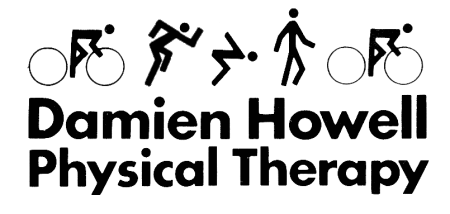Orthopedic Surgery vs Orthopedic Medicine: Considerations Regarding Elective Surgery

There is a difference between someone who practices orthopedic surgery and someone who practices orthopedic medicine. Orthopedic surgeons are interested in surgical treatment of musculoskeletal problems. Orthopedic medicine practitioners are interested in non-surgical treatment of musculoskeletal problems.
Dr. James Cyriax, author of “Textbook of Orthopaedic Medicine,” emphasized this difference. While some orthopedic problems improve with surgery, he observed, others heal more successfully with non-surgical management. As Cyriax pointed out, in the field of cardiology, a cardiac surgeon performs surgery, while a cardiologist manages cardiac problems medically. The two specialists work together to help the patient. This relationship exists in other areas of medicine as well, such as neurology (neurosurgeon/neurologist) and oncology (oncological surgeon/oncologist). Likewise, orthopedic medicine needs both types of experts.
Often the orthopedic surgeon is expected to perform the duties of a non-surgical orthopedic medicine practitioner. I suspect that a majority of orthopedic surgeons would prefer to be doing surgery than orthopedic medicine that is non-surgical orthopedic care.
This discrepancy becomes especially noteworthy when it comes to making decisions regarding elective orthopedic surgery. Elective surgery means you have a choice to pursue surgical or non-surgical intervention. As a patient, you want to hear the pros and cons of each choice. If you are under the care of an orthopedic surgeon who proposes elective surgery, he/she may not be the best source of information about non-surgical options. I remember a friend, an orthopedic surgeon, who often said, “going to an orthopedic surgeon is like a chicken going to Colonel Saunders.”
Common sense suggests obtaining surgical information directly from someone who is an expert at surgery, and non-surgical information from an expert in non-surgical interventions.
The choice for type of surgeon for musculoskeletal problems is obvious: Choose a provider who is certified in orthopedic surgical procedures.
The choice for a provider of non-surgical orthopedic medicine is a bit more confusing. There are a number of potential providers:
- Primary care physician with expertise and interest in musculoskeletal problems.
- Physiatrist (Physical Medicine & Rehabilitation Specialist) with experience in musculoskeletal problems.
- Chiropractor
- Physical Therapist who is board certified in Orthopedics.
Additional considerations:
- Choose an orthopedic medicine practitioner whose business relationship with the surgeon is independent, meaning one is not the business partner or employee of the other.
- Choose an orthopedic medicine practitioner who has a good collaborative relationship and high level of communication with the surgeon.
- If you’re orthopedic surgeon is reluctant to recommend someone to provide information on or non-surgical management of your problem, be assertive and directly seek a second opinion regarding your options.
Generally speaking, surgical intervention is riskier than a non-surgical option. The worst case scenario with surgery is that it may not be necessary – or may not be necessary now. For some elective orthopedic surgical procedures, evidence shows that conservative non-surgical intervention can be equal if not better than surgical intervention (knee, lumbar disc, rotator cuff). Surgery is a non-reversible intervention. If it does not work, the replacement joint or removal of offending tissue cannot be undone.
By contrast, the worst case scenario of a non-surgical intervention is that effective treatment may be delayed. If non-surgical intervention does not work, you may lose time and money, but you can still choose surgery. The choice of non-surgical intervention is reversible.
Remember: The non-surgical option may take longer. Sufficient time is needed to allow injury to heal and mature. To paraphrase pro football player Shaun Alexander, time heals a lot of wounds unless you pick at them.
An injury is a misfortune which provides an opportunity to enhance your virtue of patience.
Damien Howell Physical Therapy – 804-647-9499 – Fax: 866-879-8591 At-Home, At Office, At Fitness Facility, I come to you, I do home visits, or Online Damien@damienhowellpt.com
